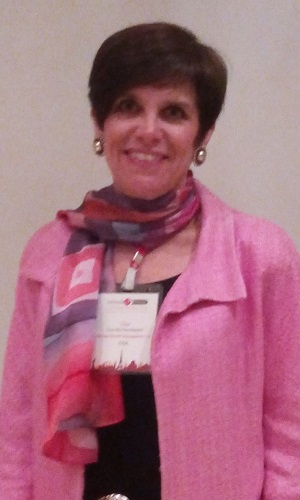Lisa Kirchenbauer, founder of Omega Wealth Management, a financial planning firm based in Washington D.C., speaks to Cafemutual on the sidelines of Network FP Event about how advisors can improve their probing and listening skills.
 What inspired you to get into financial planning?
What inspired you to get into financial planning?
I came into financial services 30 years ago right after college. I had an International Relations major under my belt. I was going to work for a government agency but I decided not to take up that job. I was in Washington DC and ended up taking an entry level job at a big brokerage firm. I got to work with a CFP 30 years ago. I was very inspired by his work. I was happy that I could make a difference in client’s life. So I decided to pursue CFP. It was the right calling for me. I love to teach people about money.
What kind of challenges did you face initially?
There were many challenges. There were not many women financial planners back then. Being taken seriously was a challenge. I didn’t start working with clients directly till about 20 years ago. So when I started on my own that was a bit of challenge because I had not interacted with clients directly. I built my client base by doing educational seminars in which I used to educate people about money management. People would come to meet me and that was a great learning experience.
How did you overcome your challenges?
You have to be competent and honest. You have to put client’s interest first. These things go a long way in building trust and credibility among clients. The easiest thing to do was to go look for women clients but that was not necessarily possible to do for every financial planner. Many of my women clients had husbands. So I ended up working with the couple and not just women.
What is your niche?
We focus on two areas. We work with entrepreneurs. These are smaller business owners. As a business owner, I can relate to their challenges. We also work with people who are in the phase of a significant transition in their life – retirement, divorce, inheritance, etc.
What are the benefits of catering to a niche?
You understand the client’s situation and offer the best solutions. There are many financial planners in Washington DC area and by having a niche focus I can stand out among the crowd. If I also say the same thing which other financial planners in my area are talking, then clients can’t make out the difference.
How do you say no to prospects who don’t fall into your niche? Does having a niche focus slow your growth, in terms of number of clients?
We do say no to clients who aren’t comfortable with life planning in which we specialize. We are looking to grow but it comes down to what kind of business are we trying to build. We are not focusing on having 1,000 clients. There are plenty of opportunities in the niche that we operate in.
Is it necessary for an individual financial advisor to scale up? Isn’t it better to cater to a limited set of happy clients?
You have to know why you have come in this business and what your goals are. If you are happy with 70-100 clients and if that supports your financial goal, then I think it’s fine. In the United States, there is a belief that you have to be bigger otherwise you won’t be able to survive. But honestly, I don’t think that is true. I think there is space for smaller financial advisors. Smaller financial advisors have to learn how to use technology to streamline their business otherwise it gets complex to even work with those 100 clients.
How can advisors engage their clients in a better way?
Back in 1999 when I founded my business I was still part of a transaction model. But I was not happy with that approach. I started fee based approach. We had quarterly performance reports through which we reached out to our clients.
How important is client feedback for advisors business?
We think it is really critical. We take feedback from clients every year. We ask them a series of questions like how happy they are with us, what they like us to focus on, etc. We also have an ‘advisory board of clients’ who give us their feedback which is working really well.
How can advisors improve their listening skills?
They have to keep quiet. Don’t worry about what your next question is.
How can advisors improve their probing skills?
I think the key is not quantity but quality of questions. You have be a good listener. We have an agenda for each client meeting. We hardly spend 10 minutes discussing about investments. Most of the time is spent talking about their life.





